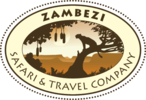
This itinerary is disabled. Please contact Zambezi Safari and Travel Co. Ltd to enable it.
Explore Ethiopia's tribes and cultures
10 Nights
Addis Ababa, Lake Langano, Arba Minch, Jinka, Turmi, Yabelo and Hawassa

This itinerary is disabled. Please contact Zambezi Safari and Travel Co. Ltd to enable it.
10 Nights
Addis Ababa, Lake Langano, Arba Minch, Jinka, Turmi, Yabelo and Hawassa